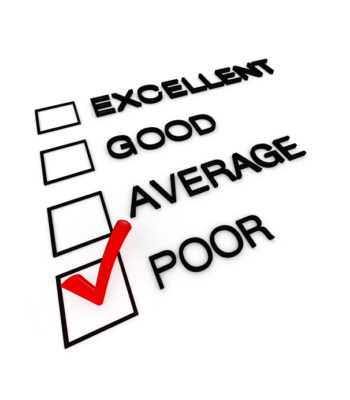
Houston We’ve Got a Problem
The phrase used as the title to this article, taken from the communication by the crew of Apollo 13 to the NASA ground controllers and subsequently made famous in a couple of movies, was repeated to me recently by a vehicle parts supplier that had been placed on “new business hold” by one of its largest customers.
While not life threatening like the situation faced by the astronauts, it was a significant event for this firm, with dire consequences for its business outlook. Basically, this important customer told the supplier that it would not be awarded any new business until there was a substantial improvement in its performance.
Through interviews with executives in the two organizations about the performance issues that led to this situation, three root causes of the problem were identified. First, in the words of one of the customer’s executives, “They just don’t listen, and as a result, they not only failed to meet our performance standards, but they didn’t even know what we expected.”
The other two problems were also viewed as significant. Again, as summarized by another executive in the customer organization: “When my children were young, I used to read them the Mr. Men books. Well, this supplier has become Mr. Late. And that’s not just a delivery issue, but it’s across the board. They threw our development cycle off track recently by failing to meet their commitment on a key component spec.” The third issue related to business systems, which were described as being “a nightmare, just an enormous time sink for even simple transactions.”
All three of these issues can frequently disrupt important supplier-customer relationships. Best-in-class suppliers are described by their customers in terms of strong linkages, timeliness, alignment along all dimensions including processes and standards, and as delivering positive surprises through best practice competencies. Such strong suppliers are known for their listening skills, and for taking actions on the messages they hear. This supplier’s challenge was to overcome legacy problems along many of these critical dimensions.
The supplier was correct in underscoring the seriousness of the situation – and perhaps in retrospect will someday thank its customer for the wake-up call. In our experience, far more relationships have failed due to implementation problems than any other single factor, even in markets defined by strong price pressures and intense competition. “The gang that can’t shoot straight” often has a short-lived relationship with its customers.
For firms aspiring to improve these key implementation competencies, a research paper[1] we published a few years ago provided a list of ideas drawn from working with strong firms in multiple industries:
- Get your customer to react to your company’s performance goals and the metrics that it uses to assess performance. Understand your customer’s metrics for evaluating suppliers and see how well they match with your own company’s metrics.
- Create linked teams from the appropriate functional areas between the two organizations to share plans and identify performance improvement opportunities.
- Document the geographic and organizational touch points between the two companies and assign individuals to establish communication links at each touch point.
- Establish an operations champion for the customer relationship.
- Research and document how your company can contribute to your customer’s success with its own customers. Define clearly – and discuss with your customer – the ways in which you can contribute to successes further down the customer chain.
- Create a forum to discuss globalization challenges and strategies. Discuss the future of the supplier-customer relationship in terms of the new regions and countries in which it is likely to operate.
- Identify what firms serve your customer’s competitors, and document ways in which you can outperform your customer’s competitors’ suppliers.
- Ask your customer to work with your firm to develop insights as to expectations for the business systems of the future.
- Sponsor process improvement programs jointly with your customer, focusing explicitly on the areas in which there are linkages between the two companies and/or handoffs that determine how well the overall system works.
- Share benchmark information and other research information with your customer in meetings that include functional experts in key areas where linkage matters.
Avoiding relationship-threatening implementation problems should be a key priority for any business supplier that depends on continuity and growth in its key customer relationships. Making the investments associated with these ideas, and demanding a company-wide commitment to excellence in execution, is the route to avoiding having to ever relay the message “We have a problem!”
Related Insights



